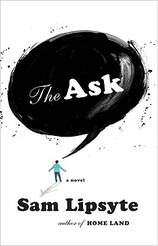Craig Nova
Craig Nova is the award-winning author of twelve novels and one autobiography. His latest novel is The Informer.
From John Irving's interview with Nova for The Daily Beast:
John Irving: Nova’s characters are not easy to like; yet, in novel after novel, he made the most unlikely characters sympathetic—and, especially lately, he’s often put them on a collision course.... So, let’s talk about collisions. What are the collisions here, in The Informer? How is it that unlikely characters become sympathetic?Visit Craig Nova's website and blog.
Craig Nova: I like the sense that one character is going to have a train wreck with another. This is more intriguing if the author makes a partnership with the reader,so the two of them together can see it coming. It is a sort of elbow in the ribs, a wink, between author and reader that makes for fun, although it is often an ominous, scary kind of fun.
And as far as unlikely characters being sympathetic, I’ve noticed that the most important thing about characters is that they want something decent, like love. And the more difficult it is to get something like love (because of unusual or trying circumstances), and the more characters want it, the more we can feel their needs. And these are human, basic needs.
In The Informer, the collisions are between two women, one from the streets and one a polite woman who works for Inspectorate A, the serious crimes section of the Berlin Police Department in 1930, and the things that are lurking in the shadows. These are events and people that these two women discover as the book goes along, but the dangers are not immediately obvious.
JI: I’ve noticed that you are having more fun with suspense in your recent books. You've always loved the ominous in fiction, those foreboding moments, haven't you?
CN: I think both of us have liked...[read on]
--Marshal Zeringue

































